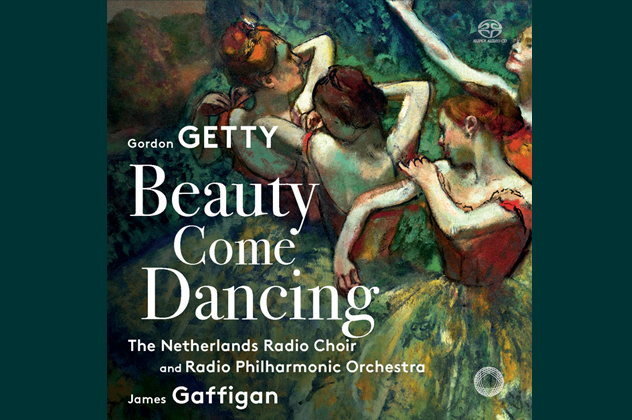Getty’s tonal language here was modern but conservative and evoked the gloom of the poem’s famous lines — The sedge has wither’d from the lake/And no birds sing — with slow, stern phrases and the kinds of harmonies that were similar to Prokofiev’s, especially when heard back-to-back.
Greg Stepanich
Palm Beach Arts Paper
- For SATB chorus and orchestra
- Duration: 8:25
- Poem by John Keats
Orchestration: oboe, English horn, clarinet, bassoons, contrabassoon, harp, strings
(Piano reduction available)
Perusal score and text available upon request
Stream La Belle Dame sans Merci on the album: Beauty Come Dancing
COMPOSER’S NOTES
La belle dame sans merci
The Old Man in the Night
My two favorite poets since college have been Keats and Masefield. Unlike Shakespeare, who beats anyone at anything in sublime moments, neither ever lost the thread. Flip to any page in the prolific outputs of Keats’ few years or Masefield’s many, and every line is rich. Then it may seem surprising that La Belle Dame Sans Merci is my first setting of Keats, and that I have never set Masefield. But my poem The Old Man in the Night is modeled on Masefield, after the Hemingway quote that begins it, so maybe that’s a start.
Belle Dame had long been in my sights for its settable length, ballad form, mighty climax, and typical Keatsian blend of earthiness and dreamscape. The E-flat clarinet, with its gift for harshness, sings what the bird might have sung in this doomed and desolate place.
Old Man shows my usual habit of setting iambic pentameter as if it were prose, putting prosody first, and leaving most musical interest to the accompaniment. The poem is fairly uniform in tone, until the last stanza, so that the choices of musical differentiation among the earlier ones might have been otherwise.
The loose ends in the text are meant as such. Here we learn from Shakespeare, the master of things unsaid, as in the nurse’s lines about Juliet as a toddler, or Shylock’s about the ring from Leah he would not have given for a wilderness of monkeys. Did the old man ever see her again? What was the grief in the fourth stanza? Why does the narrator infer that she is dead (“That none alive save he was meant to hear”)? Why “merciless”? And my setting grabs the chance to add to the puzzlement. Is it she, and not the narrator, who echoes the old man at the end? Gosh knows. There it is.
